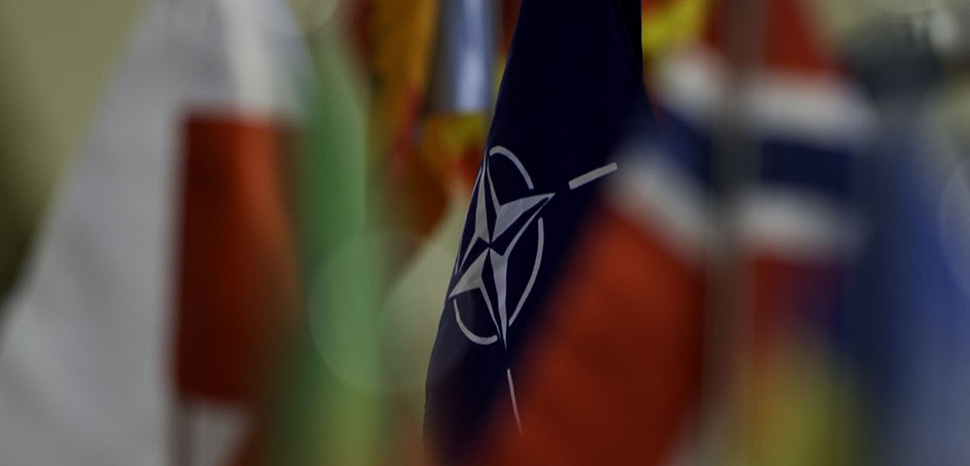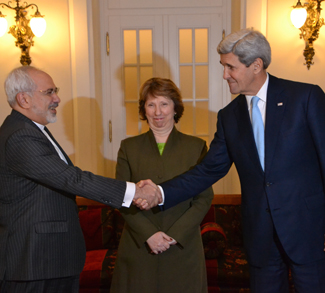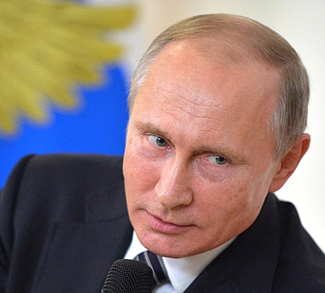Of all of Putin’s strategic mistakes, none has benefited the US-led western alliance more than Russia’s catastrophic invasion of Ukraine. After Finland’s accession in April and Sweden’s sooner rather than later, Washington and Brussels could strengthen NATO once more. In September 2023, Baku dismantled the internationally unrecognized Republic of Artsakh in the Azerbaijani district of Nagorno-Karabakh and restored its territorial integrity after 30 years of Armenian military occupation. Once a peace treaty between Azerbaijan and Armenia is signed, Baku will be free to apply for NATO membership through the Alliance’s open-door policy. Washington and Brussels would be wise to entertain its application.
There are at least two significant obstacles to Baku’s ambitious application.
First, unlike Finland and Sweden, Azerbaijan is not a liberal democracy. Far from it. Nevertheless, the perks of NATO membership could incentivize Baku to institute democratic reforms, crackdown on corruption, and improve its human rights record. Over time, this may even pave the way for Baku to upgrade the EU-Azerbaijan Partnership and Cooperation Agreement that underpins their relationship to full-fledged EU membership. Given that democratization is one of the reasons why NATO was founded, membership in the Alliance consistently serves as a checkpoint on the highway for states seeking to join the European Union. This challenge can be overcome with time and effort.
Second, Western politicians are accountable to constituents and loyal to donors in the Armenian diaspora. They consistently engage in performative solidarity with Armenian separatists in Azerbaijan’s Nagorno-Karabakh region to satisfy diaspora voters at the expense of their national interest, that is maintaining and strengthening the Western alliance. For example: France sabotaged peace talks between Baku and Yerevan in Granada two weeks ago by stating it would sell arms to Armenia, a CSTO member state trafficking Iranian-made weapons that kill innocent and defenseless Ukrainian civilians to Russia. This challenge can be overcome with reason and education.
Paris’s decision is strategically incoherent at best and intellectually shallow at worst. Yerevan is Moscow’s treaty ally. Azerbaijan is NATO member state Turkey’s treaty ally. Despite their respective differences and other Turkey-centric challenges within the Alliance, France is also a NATO member state. Russia is the Alliance’s most pressing security challenge, the biggest threat to global stability and an incessant obstacle to peace in Eurasia. So why would France sell weapons to a country in a Russian-led military alliance? Your guesses are as good as mine. Yet the deeper you dive into this, the less logical France’s decision becomes.
Roughly 2 out of every 3 Armenians are estimated to live outside of Armenia. Artsakh’s strongest support base, the diaspora, is rich, influential, and safe in the comfortable West. Armenia itself is poor, weak, and unsafe in the dangerous Caucasus. Why? The country has been blockaded by Turkey to the west and Azerbaijan to the east for three decades. Therefore, Armenia’s economy relies on Russia-occupied Georgia to the north and one border crossing with Iran to the south. Even though the status quo hurts Armenia, which paid the exorbitant human, economic, diplomatic, and geopolitical costs of maintaining the separatist entity in Azerbaijan for three decades, Western politicians consistently offer thoughts, prayers, and photo-ops for Artsakh in exchange for votes from the Armenian diaspora.
Baku checkmated Yerevan years ago. Armenia signaled that it wants to recalibrate relations with Azerbaijan, Turkey, Russia, and the West. Yerevan itself needs this reset (to end the blockade by Baku and Ankara, reverse geopolitical dependence on Tehran and Moscow, and turn thoughts, prayers and photo ops from the West into concrete support) more than all the other “interested” parties, including rich and influential diaspora Armenians living in the safe and comfortable West. With every passing day since the November 2020 ceasefire, Azerbaijan’s hand has improved while Armenia’s position has deteriorated. This begs the question: who benefits when Paris delays inevitable peace talks between Yerevan and Baku? Given that Azerbaijan recently announced it would build the corridor to Nakhichevan through Iran instead of Armenia, it certainly isn’t Yerevan or the West.
Meanwhile, despite maintaining a working relationship with Russia, Azerbaijan has always been an indispensable strategic partner for the West. Baku exports oil and gas to the European Union (EU). Brussels would have difficulty weaning itself off Russian fossil fuels and achieving energy independence without Baku. It is also Azerbaijan’s biggest trading partner. Baku maintains an important security partnership with Jerusalem, which recently replaced Russia as its number one supplier of arms. Turkey and Azerbaijan are so close they consider themselves to be “one nation with two states.” Apart from Ankara, Baku is the only other pro-Ukraine government in the South Caucasus. What’s more, Azerbaijan’s disputes with Iran make it a natural ally for the West.
Membership also makes sense because Baku already has one foot in NATO’s door. Azerbaijan is a treaty ally to Turkey. It is a strategic partner to Israel, and pro-Ukraine. The Turkish Armed Forces train the Azerbaijani military according to NATO doctrine. Baku is a member of the Euro-Atlantic Partnership Council, NATO’s Partnership for Peace, and has an ambassador to the Alliance. Besides cooperating on matters ranging from intelligence-sharing to counter-terrorism operations, Azerbaijani soldiers also deployed to NATO missions in Kosovo and Afghanistan and alongside the U.S. in Iraq. Not only does Azerbaijan exceed NATO’s 2-per-cent target on defense spending, but Baku consistently participates in the Alliance’s exercises – most recently Agile Spirit in August 2023.
From a geopolitical perspective, Azerbaijan is strategically located at the intersection of the Middle East and Central Asia. It is also the historic meeting point of three regional powers: NATO member state Turkey, and anti-Western Russia and Iran. Azerbaijan is bordered by CSTO member state Armenia to the west, Russian-occupied Georgia and Russia itself to the north, anti-Western Iran to the south, and the Caspian Sea to the east. In contrast to Armenia and the rest of its Central Asian counterparts, Azerbaijan is the only post-Soviet state to have successfully resisted the Kremlin’s Eurasian integration initiatives.
Furthermore, Azerbaijan’s membership in NATO would anchor the Alliance in anti-Western Russia’s and Iran’s backyards. It would enable the Alliance to maintain a naval fleet in the Caspian Sea, project power deep into Central Asia, and provide NATO with a 600-plus-kilometre-long border with Iran and another 300-kilometre-long border with Russia. Like Turkey, the Alliance could reinforce its air defenses by installing a second early warning radar for ballistic missiles launched from Iran to Europe. All of this is indispensable for deterring, defending, and balancing against the West’s adversaries.
While currently guaranteed by Turkey, the burden of maintaining Azerbaijan’s territorial integrity would now be shared with the rest of the Alliance. This would consolidate Baku’s control over the occupied territories it recently liberated in the west of the country while reducing the likelihood of Armenian revanchism toward Azerbaijan from low to zero. Naysayers can believe whatever misinformation they like, but 74 years of history is consistent: there is no greater insurance policy for a state’s territorial integrity than a security guarantee from NATO.
In line with NATO’s commitment to the principle of sovereignty, Brussels and Washington could also ask Ankara for a trade-off in exchange for Baku’s accession: Turkish military withdrawal from the so-called TRNC, recognition of Cyprus, and restoration of its territorial integrity after five decades of occupation. A diplomatic mega-deal of this magnitude would end the 49-year impasse, seal the deal for Cyprus’ membership in NATO, enable Turkey to participate in the East Mediterranean Gas Forum and improve Ankara’s relations with all its neighbors in the region. Challenges in Turkey’s increasingly transactional relationship with the West would remain, but the door to Ankara joining the EU would open wide once it fulfils the Copenhagen Criteria.
Finally, a NATO presence could potentially serve as a guarantee for Karabakh’s Armenian minority, easing concerns regarding reprisals, should they decide to return to Azerbaijan from Armenia. Joining NATO might even motivate Azerbaijan’s long-time rival to free itself of the Russian noose around its neck, fast-track divorce proceedings with its historic yet unreliable treaty ally, and signal its intention to join NATO and the European Union as well – even if Russia doesn’t do divorces. After all, the Alliance was also founded as a means of institutionalizing peace between member states. Perhaps Azerbaijan and Armenia will join the long list of historic rivals that includes Germany and France, and Greece and Turkey, which entered the Alliance alongside each other. Stranger things have happened.
Last year, I suggested that Turkey’s best kept secret was establishing a buffer zone between NATO and China in Turkic Central Asia. The end of the Nagorno-Karabakh conflict has finally made it possible. While ambitious and complicated, Baku joining the Alliance is an integral component of that strategy. From reforming Azerbaijan, to stabilizing the South Caucasus, and strengthening NATO, the potential benefits of Baku joining the Alliance would outweigh the costs incurred for all interested parties to the detriment of the West’s adversaries: Moscow, Beijing, and Tehran. Given that there are more Azerbaijanis living in northern Iran than in Azerbaijan itself, Washington and Brussels would be wise to entertain the possibility.
The views expressed in this article belong to the authors alone and do not necessarily reflect those of Geopoliticalmonitor.com.




